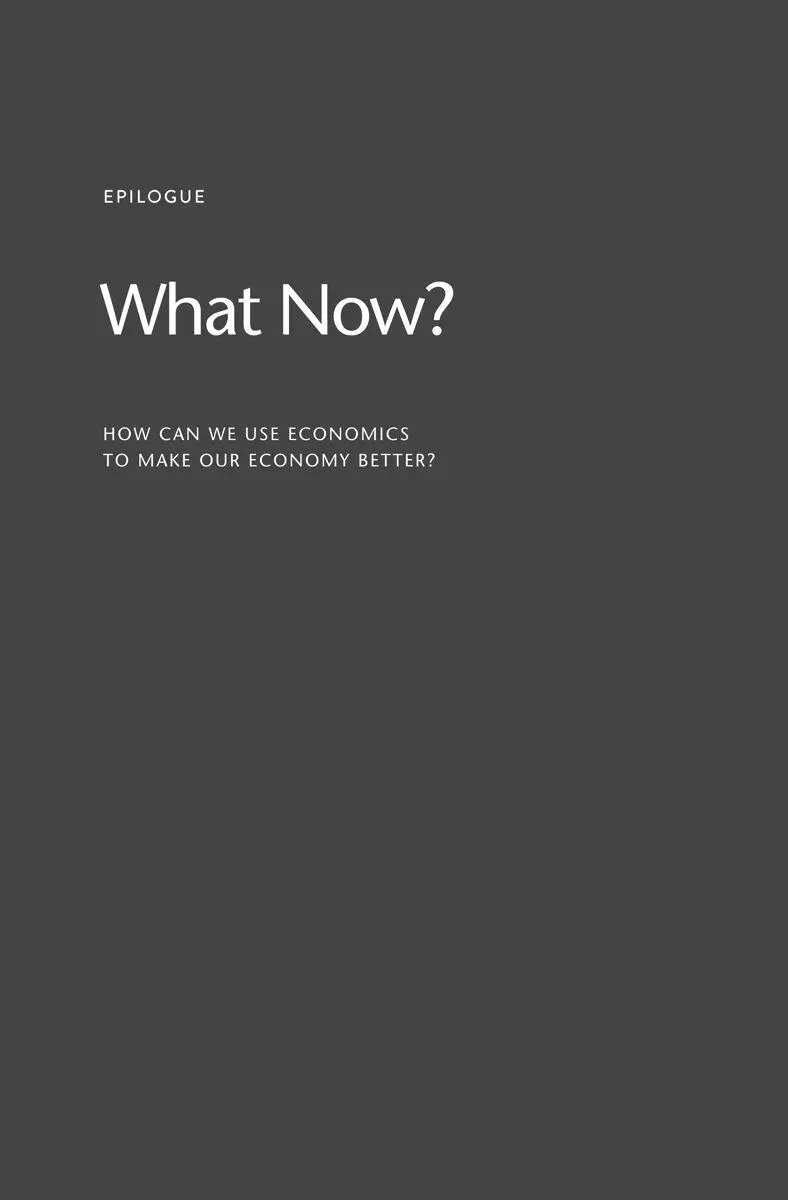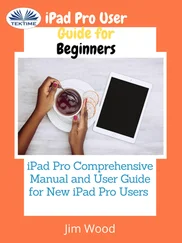H.-J. CHANG
Bad Samaritans: Rich Nations, Poor Policies and the Threat to the Developing World (London: Random House, 2007).
P. HIRST, G. THOMPSON AND S. BROMLEY
Globalization in Question , 3rd edition (Cambridge: Polity, 2009).
R. KOZUL-WRIGHT AND P. RAYMENT
The Resistible Rise of Market Fundamentalism: Rethinking Development Policy in an Unbalanced World (London: Zed Books and Third World Network, 2007).
W. MILBERG AND D. WINKLER
Outsourcing Economics: Global Value Chains in Capitalist Development (Cambridge and New York: Cambridge University Press, 2013).
D. RODRIK
The Globalization Paradox (Oxford: Oxford University Press, 2011).
J. STIGLITZ
Making Globalization Work (London and New York: W. W. Norton and Co., 2006).
M. WOLF
Why Globalization Works (New Haven and London: Yale University Press, 2004).
What Now?
HOW CAN WE USE ECONOMICS TO MAKE OUR ECONOMY BETTER?

‘It always seems impossible until it is done.’
NELSON MANDELA
How to ‘Use’ Economics?
My aim in this book has been to show the reader how to think, not what to think, about the economy. We have covered many topics, and I don’t expect my readers to remember all – or even most – of them. But there are a few important things to keep in mind when you are ‘using’ economics (this is, after all, a User’s Guide).
Cui bono?: economics is a political argument
Economics is a political argument. It is not – and can never be – a science; there are no objective truths in economics that can be established independently of political, and frequently moral, judgements. Therefore, when faced with an economic argument, you must ask the age-old question ‘Cui bono?’ (Who benefits?), first made famous by the Roman statesman and orator Marcus Tullius Cicero.
Sometimes it is easy to see the political nature of an economic argument because it is based on questionable assumptions that blatantly favour certain groups. The trickle-down argument, for example, crucially depends on the assumption that, when given a bigger slice of national output, the rich will use it to increase investments – an assumption that has not been borne out by reality.
In other situations, an argument may favour certain people unintentionally. For example, an argument using the Pareto criterion may seem not to favour anyone, as it says a change is a social improvement only when it makes some people better off without making anyone worse off and thus does not allow even a single person to be trampled on by the rest of society. Yet it implicitly favours those who benefit more from the status quo, as the criterion allows them to prevent any change to the status quo that hurts them.
Political and ethical judgements are present even in ostensibly value-free exercises, such as defining the boundaries of the market. Deciding what belongs in the domain of the market is an intensely political exercise. Once you can drag something (say, water) into the domain of the market, you can apply the ‘one-dollar-one-vote’ rule to decisions surrounding it, making it easier for the rich to influence the outcome. Conversely, if you can take something (say, child labour) out of the domain of the market, it becomes impossible to influence its use with the power of money.
Saying that economics is a political argument does not mean that ‘anything goes’. Some theories are better than others, depending on the situation at hand. But it does mean that you should never believe any economist who claims to offer ‘scientific’, value-free analysis.
Don’t become a ‘man with a hammer’: there is more than one way to ‘do’ economics, each with its strengths and weaknesses
As we have seen, there isn’t just one right way of ‘doing’ economics, despite what most economists tell you. Though the Neoclassical approach has been the dominant one in recent decades, there are at least nine different schools of economics, each with its strengths and weaknesses.
The economic reality is complex and cannot be fully analysed with just one theory. The various economic theories conceptualize basic economic units differently (e.g., individuals vs. classes), focus on different things (e.g., macro-economy vs. micro-economy), ask different questions (e.g., how to maximize the efficiency with which we use given resources vs. how to increase our abilities to produce those resources in the long run) and try to answer them using different analytical tools (e.g., hyper-rationality vs. bounded rationality).
As the saying goes, ‘he who has a hammer sees everything as a nail’. If you approach a problem from a particular theoretical point of view, you will end up asking only certain questions and answering them in particular ways. You might be lucky, and the problem you are facing might be a ‘nail’ for which your ‘hammer’ is the most appropriate tool. But, more often than not, you will need to have an array of tools available to you.
You are bound to have your favourite theory. There is nothing wrong with using one or two more than others – we all do. But please don’t be a man (or a woman) with a hammer – still less someone unaware that there are other tools available. To extend the analogy, use a Swiss army knife instead, with different tools for different tasks.
‘Everything factual is already a theory’: facts, even numbers, are in the end not objective
Johann Wolfgang von Goethe, the German writer ( Faust ) and scientist ( Theory of Colours ), once said that ‘everything factual is already a theory’. [278] J. W. von Goethe, Sämtliche Werke , Part 1: Maximen und Reflexionen, Schriften zur Naturwissenschaft , Jubiläumsausgabe xxxix, 72, as cited in A. Gerschenkron, Continuity in History and Other Essays (Cambridge, MA: Harvard University Press, 1968), Chapter 2, p. 43.
This is something to bear in mind when looking at economic ‘facts’.
Many people would assume that numbers are straightforward and objective, but each of them is constructed on the basis of a theory. I might not go as far as Benjamin Disraeli, the former British prime minister, who quipped that ‘there are lies, damned lies, and statistics’, but numbers in economics are invariably the results of attempts to measure concepts whose definitions are often extremely contentious or at least debatable. [279] Theodore Porter, the eminent historian of science, argues that even many scientific numbers are constructed in response to political and social pressures. See his book Trust in Numbers: The Pursuit of Objectivity in Science and Public Life (Princeton: Princeton University Press, 1995).
This is not just an academic quibble. The way we construct economic indicators has huge consequences for how we organize our economy,what kind of policies we implement and ultimately how we live our lives.
This applies to even the most basic figures that we take for granted, like GDP or the rate of unemployment. The exclusion of household work and unpaid care work from GDP has inevitably led to the under-valuation of those types of work. GDP ’s inability to take into account positional goods has directed consumption in the wrong direction and made it an unreliable measure of living standards for rich countries, where those goods are more important (see Chapter 6). The standard definition of unemployment underestimates the true extent of it by excluding discouraged workers in the rich countries and the under-employed in the developing countries (see Chapter 10). Naturally, these types of joblessness have been rather neglected by policy-makers.
Читать дальше













